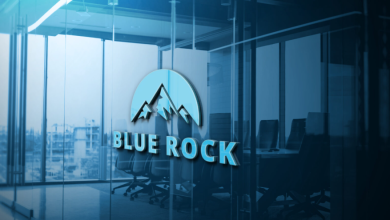Exploring the Evolution of Gamer Marketplaces and Their Impact on Gaming

Over the past few years, the gaming industry has seen an incredible transformation, and one of the most significant changes has been the rise of gamer marketplaces. These platforms have reshaped how players engage with video games, allowing them to buy, sell, and trade in-game items, accounts, services, and more. Whether you’re looking to purchase rare in-game skins, hire a coach, or level up your account, marketplaces for gamers have become an essential part of the gaming ecosystem.
In this article, we’ll explore how gamer marketplaces have evolved over time and their impact on gaming culture, economics, and the way players experience their favorite titles. We will also examine some features that define a successful marketplace and the growing role of platforms like Boostroom in this exciting new landscape.
The Early Days: Forums and Peer-to-Peer Trading
Before the creation of dedicated gamer marketplaces, players often relied on forums, social media groups, and peer-to-peer trading to buy or sell in-game items. These informal methods of exchange were often time-consuming, unreliable, and lacked the security measures that modern marketplaces for gamers provide today.
While some players would trade items and services directly with one another, many deals were based on trust alone, leading to instances of scams or failed transactions. Forums allowed players to connect, but they lacked the infrastructure to facilitate seamless exchanges. As a result, players had to navigate these spaces carefully to avoid fraudulent behavior or miscommunication.
In this environment, it became clear that there was a need for a centralized platform where players could engage in these transactions in a safer, more structured way. This need paved the way for the next evolution of gamer marketplaces.
The Rise of Dedicated Gamer Marketplaces
The introduction of gamer marketplaces marked a major shift in the way in-game assets were traded. These platforms were designed specifically for the needs of gamers, providing them with a centralized hub where they could buy, sell, and trade items, services, and accounts with minimal risk.
One of the earliest examples of a dedicated marketplace for gamers was the introduction of platforms that focused on trading in-game currency, skins, and other digital goods. These platforms streamlined the process of buying and selling by offering structured categories, advanced search features, and secure payment methods. Players could now find what they were looking for quickly and with more confidence.
As these platforms gained popularity, they began to diversify their offerings, expanding beyond simple item sales to include services like game boosting, coaching, and even account recovery. Players could now hire professionals to help them level up their accounts, complete challenging missions, or improve their in-game skills. This shift helped create a new economy within the gaming world, with players able to monetize their skills and expertise.
The Role of Professional Services in Gamer Marketplaces
One of the key developments in the evolution of gamer marketplaces has been the rise of professional services. Boosting services are among the most popular offerings, where players pay others to level up their accounts or complete challenging in-game objectives. This trend has significantly impacted the way gamers approach titles that require significant time investments.
Boostroom, for instance, is a platform that offers various services to gamers, such as power-leveling and coaching. By providing these types of services, Boostroom and other similar platforms have made it possible for players to enjoy their favorite games without spending countless hours grinding for resources or completing tedious tasks.
The growth of professional services in gamer marketplaces has also led to an increase in competition among service providers. As more players seek out these services, the quality and pricing of these offerings have become more competitive. The result is a broader range of options for consumers, allowing them to choose the service that best fits their needs and budget.
The Economic Impact of Gamer Marketplaces
As gamer marketplaces have evolved, they have also had a profound impact on the economics of gaming. The creation of these platforms has led to the emergence of new business models within the gaming industry. Gamers now have the opportunity to sell in-game items, services, and accounts, which has created a whole new source of income for many players.
For some gamers, selling rare in-game items or offering professional services has become a full-time job. The ability to earn real-world money through gaming has been a game-changer for many players. This trend has also led to the rise of “virtual economies” where in-game currencies, items, and services are traded for real-world value.
In some cases, these virtual economies have even outgrown the original games themselves. Players are now able to buy and sell virtual goods on a scale that rivals traditional e-commerce, with some items fetching significant sums of money. Gamer marketplaces have made this possible by providing the infrastructure to facilitate these transactions safely and securely.
The Community Impact: Bringing Gamers Together
Beyond the economic impact, gamer marketplaces have also contributed to the creation of vibrant communities within games. These platforms connect players from around the world, allowing them to share knowledge, trade items, and even collaborate on achieving in-game goals. By offering services like coaching and power-leveling, marketplaces for gamers help players improve their skills and reach new heights in their favorite games.
One of the most important aspects of this community-building process is the creation of feedback systems. Gamer marketplaces that allow buyers and sellers to rate each other create a reputation system that fosters trust within the community. Players can see how other users have rated their experiences, which helps ensure that transactions are conducted fairly and transparently.
As a result, gamer marketplaces have become more than just places to buy and sell items; they have become central hubs for gaming culture and collaboration. Players can find others who share their interests, whether they’re looking to level up their skills, purchase rare items, or simply discuss the latest trends in gaming.
Features of a Successful Gamer Marketplace
A successful gamer marketplace should have a few essential features that make it stand out in a crowded landscape. Here are some key attributes to look for when choosing a platform:
- User-Friendly Interface: The platform should be easy to navigate, with clear categories and search functionality to help players find what they’re looking for quickly.
- Reliable Payment Methods: Secure and reliable payment options are essential for both buyers and sellers to complete transactions confidently.
- Reputation System: A robust review system that allows buyers and sellers to rate their experiences helps foster trust and transparency in the marketplace.
- Diverse Offerings: The marketplace should offer a wide range of products and services, including in-game items, accounts, and boosting services.
- Responsive Customer Support: A responsive customer support team is crucial for addressing any issues or concerns that may arise during a transaction.
Conclusion
The evolution of gamer marketplaces has had a profound impact on the gaming world. These platforms have transformed how players interact with their favorite games, offering new ways to buy, sell, and experience in-game content. Whether it’s buying rare skins, hiring a coach, or leveling up your account, marketplaces for gamers have become an integral part of the gaming experience.
As platforms like Boostroom continue to evolve, the possibilities for gamers continue to expand, offering new services and features that can enhance the overall gaming experience. The growth of gamer marketplaces has not only created new economic opportunities but also helped foster a sense of community among players.
With so many benefits and features, it’s clear that gamer marketplaces will continue to play a crucial role in shaping of gaming, providing players with the tools they need to enjoy and succeed in their favorite games.








